#Ghana Electoral Commission
Text
Electoral Commission (EC) to Display Preliminary Voters Register Starting November 3rd
The Electoral Commission (EC) has announced that there will be an exhibition of the provisional voters’ register from Friday, November 3, 2023, to Tuesday, November 7, 2023.
The exhibition will take place at all 38,622 polling stations across the country from 7 a.m. to 6 p.m.
Voters are expected to visit their polling stations to ensure that their details, including name, age, sex, and polling…
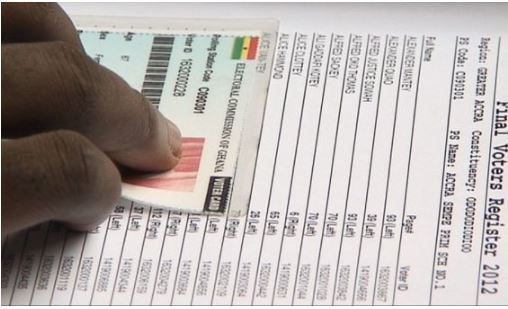
View On WordPress
0 notes
Text
Nigeria’s elections critical to Liberian, Sierra Leonean 2023 polls – West African coalition
A regional coalition of pro-democracy civil society organisations has said Nigeria’s general elections have implications for similar polls taking place in two West African countries within the year. The two other West African countries are Sierra Leone and Liberia.
The West Africa Democracy Solidarity Network (WADEMOS) said this on Friday during its four-day official visit to Nigeria. The…
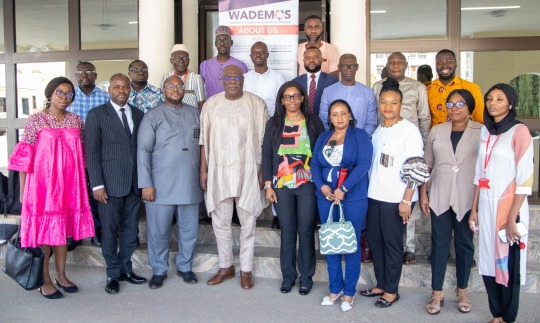
View On WordPress
#Advocacy and Policy Engagement#Ghana#Independent National Electoral Commission (INEC)#Inter-Party Advisory Council (IPAC)#National Assembly Elections#the Centre for Democracy and Development (CDD)#West Africa Democracy Solidarity Network (WADEMOS)
0 notes
Text
0 notes
Text
Unbeknownst to most Americans, for whom Africa scarcely registers as an afterthought, the United States has a long and deep history of special relations with Ghana.
I am not talking about the story of the Atlantic slave trade, which brought roughly a tenth of its overall traffic, or 1.2 million human beings in chains, to the Americas from the shores of what is now Ghana. The sourcing of bonded labor from Ghana lasted for hundreds of years but peaked in 18th century, when the sacrifice of African lives to brutal plantation work fed an explosion of wealth in the West.
The special relationship in question here involves none of that tragedy, and yet it lays bare cautionary tales for both parties. It began in earnest around 1992, when a new constitution in Ghana established an independent electoral commission—leading to a long period of stable democratic rule.
Since then, the country has conducted a string of highly competitive elections, including repeated nail-biters that have generated far less partisan disturbance about the results than, say, the United States. This has helped turn Ghana into a model to be embraced and upheld by Washington as an example of democracy worthy of emulation by nearby African countries in a neighborhood where democracy, always an up-and-down affair in the region, has suffered numerous setbacks in the past decade.
Over the years, Ghana’s democratic performance has repeatedly won it the favor of the World Bank and International Monetary Fund (IMF), Western-dominated financial institutions in which the United States holds great sway. To them, it does not seem to have mattered so much that their economic policy advice and various financial support packages have not led to any lasting improvement in Ghana’s prospects as a nation. To acknowledge this would be to recognize the stark inherent weaknesses of their approach to international development.
Just as with elections, the West needs to have Ghana available for display as a good “pupil”—and in some sense, even though Ghana is only a medium-sized country by the standards of the continent, it has become too big, or at least too important, to fail.
More recently, a third plume has been added to Ghana’s cap: security. In the Sahel region, a broad, semi-arid area that lies to Ghana’s north, one weak and unstable landlocked country after another has sharply downgraded its relations with its former colonial power, France. For years, Paris had been helping them fight against the spread of Islamic insurgencies—and failing. In quick succession, Mali, Niger, and Burkina Faso have all cried “enough!”
Inviting French troops to leave, they have opted instead for a new approach, however uncertain, which consists of strengthening relations between themselves and inviting the help of new partners, Russia foremost among them.
This not only affects France, whose position in the world has long depended on the kind of aggrandizement that it enjoys by being the patron and sometimes master of a large clutch of still-dependent former African colonies. It could also affect Washington’s ability to station sizable drone forces in the region, both to support its own local intelligence operations and to combat Islamist groups without risky on-the-ground troop operations.
This is not all that the ongoing changes in the Sahel affect, though. The removal of Western anti-terrorist operations in the region inevitably leads to a greater reliance on generally richer and more stable coastal states (think Ghana and Ivory Coast in particular) for preventing the growing influence of al Qaeda and Islamic State affiliates.
Here, then, is yet another reason that for the West, Ghana has become too important to fail. If it doesn’t step up to help anchor a U.S. and European security presence in the region, or worse, if it should fall prey to spreading terrorism, then West Africa—a vast region that is home to a fast-growing population of hundreds of millions of people—risks becoming radically destabilized. The potential consequences of this, first for West Africans themselves but also for the West, are dire.
Violence and economic misery in the heavily populated coastal regions of this part of the continent will not only stunt lives and arrest improvements in living standards, but they will also likely spur a much greater wave of migration than hitherto seen in Europe or North America.
Now there is a new complication. Beginning even well before colonial times, Ghanaian culture has been deeply penetrated by that of the West. Up and down the coast, one of the ways this can be most readily seen is in the proliferation of evangelical churches, many of them influenced and supported by American evangelicals.
Recently, this influence has made itself felt through a successful push by the Ghanaian parliament to pass an abhorrent bill criminalizing people who identify as members of the LGBTQ community. In many ways, this mirrors evangelical influence in conservative U.S. states such as Florida, for example, where legislators have passed laws restricting the use of personal pronouns in public schools and prohibiting gender-affirming care for minors, among other measures targeting LGBTQ Floridians. In Ghana, conservative Christian groups were joined in supporting the new law by conservative Muslims and traditional leaders in the country.
Ghana’s outgoing president, Nana Akufo-Addo, has avoided making his intentions clear about whether he will sign the bill, saying that he is awaiting a ruling by the country’s Supreme Court on its legality first. Even without the president’s assent, the parliament can put the law into effect with a two-thirds vote.
The consequences of this could be devastating. The U.S. State Department has expressed its strong disapproval of the bill and warned that its adoption would harm bilateral relations as well as damage Ghana’s economy and international reputation. The World Bank and IMF have also suggested that their aid and loan packages might have to be reconsidered—and European Union countries could react similarly.
LGBTQ rights are as much a domestic political issue in the United States as they are in Ghana, though. Somehow, at some point soon, they could force a reckoning for both countries that their leaders had never imagined and are not prepared to confront.
In the past, most frontal clashes between the international security interests and human rights values of the United States have usually occurred in countries that Washington deems economically or strategically vital (say, Saudi Arabia, for historically restricting the rights of women) or Israel (which the United States has long avoided publicly pressuring over the rights of Palestinians).
But if Ghana begins jailing people for being gay, this would amount to such a clear violation of human rights that the United States could be obliged by law to sever much of its support for the country and would find it much more difficult to avoid doing so.
One must not lose sight of Ghana’s choices in this matter. It is not, as some claim, an issue of simply complying with American values or demands. Civil society groups in Ghana and even the country’s Catholic bishops have denounced the legislation, which one opposition politician, Samia Nkrumah—the daughter of Ghana’s first president—has called a “brutal, harsh, unjust” law. It is unclear how much weight voices like these will carry in the debate.
In a number of African countries, politicians have demagogically promoted the persecution of LGBTQ people on the specious basis that homosexuality was introduced by colonizers (who were, in reality, often the ones who introduced the idea of punishing it). This is a clear fallacy, though, meant to appeal to a bogus form of nativism.
The best reason for Ghana to oppose this law is not foreign pressure at all, even though it could have damaging consequences. The real reason is bound up in the ideals of the continent’s independence movements of seven decades ago: All of Africa’s people are fully-fledged human beings and should be allowed to live in freedom.
6 notes
·
View notes
Text
On August 9, 2022, Kenyans will cast their ballots for president, members of parliament, and members of the Kenyan senate. Incumbent ruling Jubilee Party President Uhuru Kenyatta, barred by the constitution from seeking a third term, has thrown his support behind opposition challenger, Raila Odinga, the prime minister who is a member of the Orange Democratic Movement, over his own deputy president, William Ruto, which has led to splits within the Jubilee Party. Odinga and Ruto are viewed as the leading candidates in a race featuring 40 candidates, which could result in a runoff.[...]
Uhuru Kenyatta, the current president who was elected in 2013, is the son of Kenya’s first president, Jomo Kenyatta. [...] In 2019, Kenyatta, who is barred by the constitution from seeking a third term, launched what he called his Building Bridges Initiative (BBI) in cooperation with the opposition leader, Raila Odinga. [...]
Five justices of the Kenyan Court of Appeals agreed with those opposing the law and struck it down in 2021 as unconstitutional. [...]
Jean Mensa, chair of the Electoral Commission of Ghana, who headed a US Agency for International Development-funded pre-election assessment mission co-sponsored by the National Democratic Institute and the International Republican Institute, told the Ghana News Agency that the assessment indicated that “the 2022 general election had the potential to be a pivotal milestone for democratization in Kenya.” The purpose of the mission was to provide independent, impartial information [sic] and recommendations in advance of election day and to demonstrate international support for credible and peaceful elections. [...]
In addition to the Kenyan general elections, major elections are slated for Angola and Senegal, which are likely to influence the political trajectories in each country. In Kenya and Senegal, increased tensions and violence are likely. Other elections scheduled for 2022 are Chad, Comoros, Djibouti, Equatorial Guinea, The Gambia, Lesotho, Libya, Mali, Mauritius, Republic of Congo, Sao Tome and Principe, Sierra Leone, Sudan, and Tunisia [...]
Except for some interest in Russian activities in Africa, it is doubtful if many in the Washington policy establishment are even paying much attention to Kenya at the moment, even though Kenya is a key American partner in the region [editors note: lol. lmao]
28 Jun 22
12 notes
·
View notes
Text
All is not well with our democracy – Afari-Gyan
A former Chairman of the Electoral Commission, Dr. Kwadwo Afari-Gyan, has expressed deep concerns about Ghana’s democracy, citing broken promises and rampant vote-buying.
He emphasised the urgent need for corrective measures, stating that the country is retrogressing in its democratic journey.
Dr. Afari-Gyan highlighted the prevalence of electoral malpractices, with politicians prioritising empty…

View On WordPress
0 notes
Text
News - Dr. Bawumia is the future of Ghana – Afenyo-Markin
YouTube Online – Get daily updates on sports, entertainment, music, food, tourism and all news & videos trending online
NPP MP Afenyo-Markin lauds VP Bawumia as Ghana’s future leader, touting him as best for presidency and ready to debate NDC. Meanwhile, NDC’s Mahama warns Electoral Commission against rigging 2024 elections, urging fairness and respect for citizens’ will during his tour in…
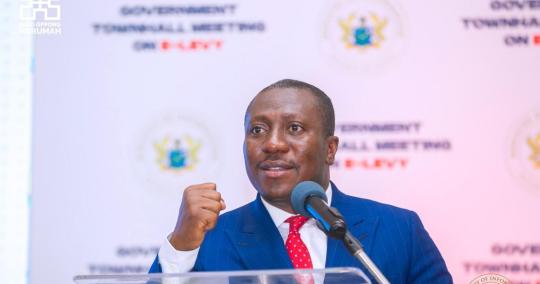
View On WordPress
0 notes
Text
DI Redeploys Observation Mission for the October 20 Rerun in Liberia's Nimba District 4 for the 2023 Presidential and General Elections
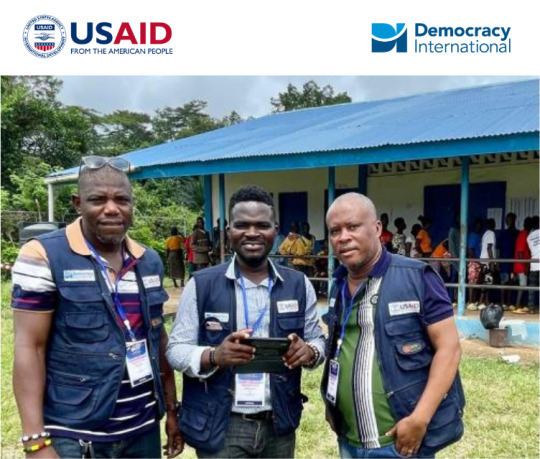
By: DI's Elections and Democracy Activity Team
Democracy International (DI) announced today that it is re-deploying its specialized observation mission by sending three of its observers to witness the re-run in Beo Lontuo, Nimba County District 4 for the 2023 General Elections for the President, Senate, and House of Representatives in Liberia. Liberians voted on October 10, 2023. The National Elections Commission announced that elections are being re-run at two polling places in this location because two ballot boxes were stolen and destroyed by members of the public, and other boxes were damaged during the incident. This mission follows that deployed by DI on October 10, 2023, with 25 observers to six counties (Bomi, Bong, Grand Cape Mount, Margibi, Montserrado, and Nimba) in 19 of the country’s 73 electoral districts.
In its October 14, 2023, preliminary statement following Election Day, DI commended the Liberian people for their high turn-out, reported by the NEC on October 18, 2023, to be 78.8% with most, but not all, tallies complete. With 1,833,189 valid votes out of 1,947,786 cast tallied thus far, DI notes the 5.88% rate of invalid ballots (114,597) is similar to the African average and past Liberian elections. Given the challenges of running elections in Liberia and doing so independently for the first time since the civil wars, the NEC and the Liberian electorate have reason to feel proud of the process thus far.
DI again congratulates the National Elections Commission and the NEC poll workers for their professional delivery of these elections, despite the many challenges of doing so. DI trusts that the Beo Lontuo re-run elections will continue the national experience of a predominantly peaceful election.
The mission continues to demonstrate international support for the Liberian people in accordance with the Universal Declaration of Human Rights and the International Covenant on Civil and Political Rights. The mission also contributes to DI’s ongoing work in Liberia, including with the National Elections Commission and the Election
Coordinating Committee, a leading Liberian election observation group. DI works closely with Liberian organizations to encourage greater participation of marginalized groups, including women and youth, and deliver voter education nationwide. DI is organizing this mission in accordance with the Declaration of Principles for International Election Observation, declared at the United Nations in 2005.
The Elections and Democracy Activity is a five-year, USAID-funded project designed to help Liberia overcome challenges facing its developing democracy by fostering inclusive, sustainable, democratic political development. Implemented by DI, EDA is cultivating a new cadre of accountable, diverse, inclusive leaders in Liberia to govern in the interest of their constituents as well as active, knowledgeable citizens that demand accountability. EDA works with the Government of Liberia and civil society organizations to achieve this through three interrelated objectives:
Increase leadership of marginalized groups in political processes,
Improve civic knowledge and sense of civic duty,
Advance self-reliance of the National Election Commission and civil society organizations to independently manage and observe all stages of the electoral cycle.
Democracy International provides analytical services, technical assistance, and project implementation for democracy and governance programs worldwide. Since its founding in 2003, DI has worked in 80 countries and has conducted election observation missions and election assistance programs in Afghanistan, Albania, Bangladesh, the Democratic Republic of the Congo, Djibouti, Haiti, Ecuador, Egypt, El Salvador, Ghana, Kenya, Indonesia, Mozambique, Pakistan, South Africa, South Sudan, Sudan, and Tunisia, among other places. Democracy International is a signatory to the Declaration of Principles for International Election Observation and the Code of Conduct for International Election Observers.
#program update#democracy#elections#usaid#international development#democracy international#latest#liberia
1 note
·
View note
Text
The court issues an injunction against the MUSIGA election
An Accra High Court has placed an interlocutory injunction on the upcoming Musicians Union of Ghana (MUSIGA) elections scheduled for tomorrow, Tuesday, August 8, 2023.
The polls, which were to be held under the supervision of the Electoral Commission of Ghana, will be postponed until the court rules on the matter.
Doe Kwablah Seyenam Nyamadi and Frederick Van Dyk, both MUSIGA members, are…

View On WordPress
0 notes
Text
Bryan's comment must worry the EC and security agencies - Kobby Mensah
Business School (UGBS), has urged political parties, the security services, and the Electoral Commission of Ghana (EC) to express alarm over recent remarks made by the Minister of Food and Agriculture.…
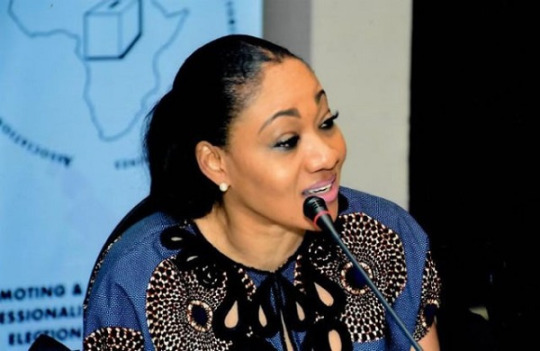
View On WordPress
0 notes
Text
Tribunal: I’m confident in judiciary- Peter Obi assures Nigerians

The presidential candidate of the Labour Party, Peter Obi, has said he is confident in the judiciary to deliver the right judgement with regard to the case before the Presidential Election Petitions Tribunal where he is challenging the result of the just-concluded February 25 presidential election.
Obi expressed his confidence in the judiciary during a live appearance on Channels Television’s Sunrise Daily on Thursday morning.
The LP candidate said he had no reason to doubt the court, stating that Nigeria has one of the finest judiciary in the world, however, saying that politicians are the people trying to corrupt the judiciary.
The Independent National Electoral Commission had come under fire for its failure to upload the results of the presidential election from all polling units across the federation to its Results Viewing Portal (IREV) on Election Day.
Ignoring the protestation of the opposition parties, INEC in the early hours of Wednesday, March 1, 2023, declared Bola Tinubu of the All Progressives Congress, the President-elect and winner of the election. Tinubu polled about 8.8 million votes ahead of his rivals in the Peoples Democratic Party, Atiku Abubakar, who polled 6.9 million votes and Obi himself, who polled 6.1 million votes.
Dissatisfied with the election results and declaration, the Labour Party approached the Presidential Election Petition Tribunal to grant it permission to inspect the election materials used by the commission during the February 25 polls, including the Bimodal Voter Accreditation System, which was the major technology deployed during the polls to enhance a free and free process.
The chairman of the electoral body, Mahmood Yakubu, while receiving lawyers from the Labour Party on Monday assured them that the commission had nothing to hide and pledged to provide all documents requested to aid the ongoing suit.
When asked however, if his trust in the electoral body had been rekindled with the pledge of the INEC chairman, Obi said, “They are now dealing with the lawyers. I don’t go to INEC, I’m not part of it. Well, I believe the lawyers are satisfied and if they are, it is no longer about me trusting INEC, there’s now something between the two of us. So, if our lawyers trust them, I’m fine with that.”
Expressing confidence in the judiciary, Obi said, “I am confident in the judiciary. I am because I have stayed in court for three years when people said it was impossible for you to become a governor through the court and I became the first (to reclaim a stolen mandate). Remember I was impeached and again the court brought me back. And I went for interpretation where I said, ‘My tenure is not complete’. People said it’s impossible because somebody else had been elected but I changed it.
“So, having gone through courts, several of them, I have not had any cause to doubt the court.
“I believe Nigeria has one of the best judiciary globally, but it is we, the politicians, because of our transactional nature, that are trying to ensure that everywhere is corrupted. That I wish can start reversing, even with this case. They are seeing globally what is happening, Africans are surprised that the giant of Africa can no longer deliver. Even Ghana will soon have elections and they will do all without the BVAS and it will go smoothly.
“I don’t go anywhere referring to how others were treated. Irrespective of their judgements recently, I have confidence that they know the country is collapsing, they know they have to help to build a better place for their children.”
Read the full article
0 notes
Text
Use of Ghana Card will sanitise vGhana Card
The Majority Caucus in Parliament has thrown its weight behind the decision by the Electoral Commission (EC) to use the Ghana Card as the sole identification document for continuous voter registration to ensure electoral integrity.
It said the use of the Ghana Card would help to sanitise the voters’ register and make it more robust, devoid of any leakages or fraud that could undermine…

View On WordPress
0 notes
Text
Minority defers petition rejecting Ghana Card for voter registration
Minority defers petition rejecting Ghana Card for voter registration
The Minority in Parliament has deferred its petition to the House to suspend any action on the proposed Public Elections Instrument by the Electoral Commission until negotiations are concluded with the relevant stakeholders.
The EC announced its plans to rely on the Ghana Card as the sole document for registration onto the voters register for the 2024 General Elections.
But the Minority has…

View On WordPress
0 notes
Text
Nigeria’s elections outcome will affect West Africa — ECOWAS
Nigeria’s elections outcome will affect West Africa — ECOWAS
The Economic Community of West Africa States has said the outcome of the 2023 general elections of Nigeria will have effects on the West Africa region and Africa continent as a whole.
ECOWAS stated this when a delegation of ECOWAS Pre-Election Fact Finding Mission to Nigeria led by former chairman, Electoral Commission of Ghana, Kwadwo Afari-Gyan, visited the Independent National Electoral…
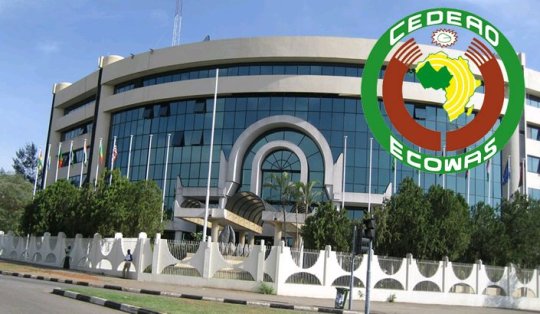
View On WordPress
0 notes
Text
Electoral Commission to cancel registration of 17 political parties
Electoral Commission to cancel registration of 17 political parties
The Political Parties Act 2000 mandates the EC to revoke the registrations of parties that do not have a presence in all districts and regions of Ghana.
In a notice published on Thursday, October 13, 2022, the commission said that it has resolved to crack the whip this time around.
“The Commission intends to invoke Section 15 (3) (c) of the Political Parties Act of 2000, Act 574, which mandates…

View On WordPress
0 notes
Text
0 notes